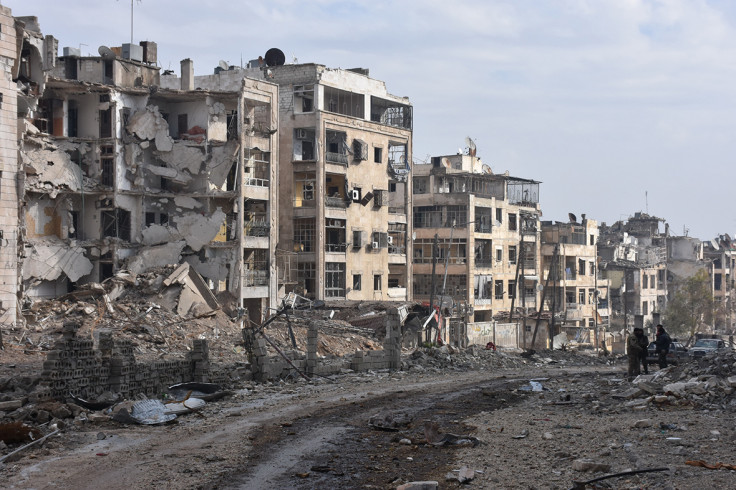Russian President Vladimir Putin announces Syrian ceasefire deal
It would bring a nationwide halt to the fighting that erupted in 2011.
The Syrian government of President Bashar al-Assad and opposing rebel groups have signed a deal for a nationwide ceasefire and committed to starting peace negotiations to end the five year civil war, Russian President Vladimir Putin announced on 29 December.
The statement was confirmed by the Syrian army, which announced a nationwide ceasefire as of midnight through state news agency Sana shortly afterwards. The military command "declares a comprehensive nationwide cessation of hostilities as of midnight," the Associated Press reported.
The warring parties signed three documents: the first concerning the nationwide ceasefire, the second on a set of measures to monitor the ceasefire, and the third one committing the parties to start peace negotiations, Putin said, as quoted by the Russian news agency Tass.
Both the government and the opposition reportedly agreed to halt attacks, including aerial attacks, and territorial expansion. Putin admitted that the agreements reached remain fragile and will require special attention and constant monitoring.
"We all understand they are very fragile, they require special attention and patience, professional approach to these issues and constant contact with our partners", he said, speaking at a meeting with foreign minister Sergey Lavrov and defence minister Sergey Shoygu.
Lavrov added that that President-elect Donald Trump's administration will be welcome to join the peace process once he takes office, the Associated Press reported.
Turkish officials hinted on 28 December that the deal was within reach, and that the negotiators were working to implementing the agreement "as we enter 2017," as reported by Turkish state news agency.
Russia, Iran and Turkey will serve as guarantors of the deal. Speaking to the Turkish A Haber news channel on 29 December, Turkish foreign minister Mevlut Cavusoglu said Turkey would act as guarantor of rebel compliance, Russia would guarantee adherence by the government and Iran
would act as a guarantor for the Syrian government as well as allied Shiite groups, including Hezbollah.
Cavusoglu also said that the ceasefire will exclude UN-designated terrorist organisations (such as the Islamic State and the al-Nusra front, which controls part of the rebel-held province of Idlib) and that the Iran-backed Lebanese militant group Hezbollah, which sent thousands of fighters to support Assad's army, should withdraw from Syria.

According to reports in the Russian media, peace negotiations are supposed to start in January in Astana, Kazakhstan, and then continue in February in Geneva, where the UN Secretary General's special envoy for Syria Staffan de Mistura plans to launch the next round.
The announcement comes a day after the Russian embassy in the Syrian capital of Damascus was hit by mortar fire.
Russian officials said a mortar round landed in the embassy courtyard without exploding, and another fell in the vicinity and blamed "extremists" opposed to a settlement of Syria's conflict.
Syria's civil war started in 2011 following protests asking for the end of Assad's rule, which erupted as part of a region-wide wave of pro-democracy protests known as the Arab Spring. In the ensuing five years of conflict in Syria, more than 10 million people have been displaced, according to the United Nations. While the number of casualties cannot be counted with certainty, it is estimated that more than 300,000 people lost their lives in the war.
© Copyright IBTimes 2025. All rights reserved.






















